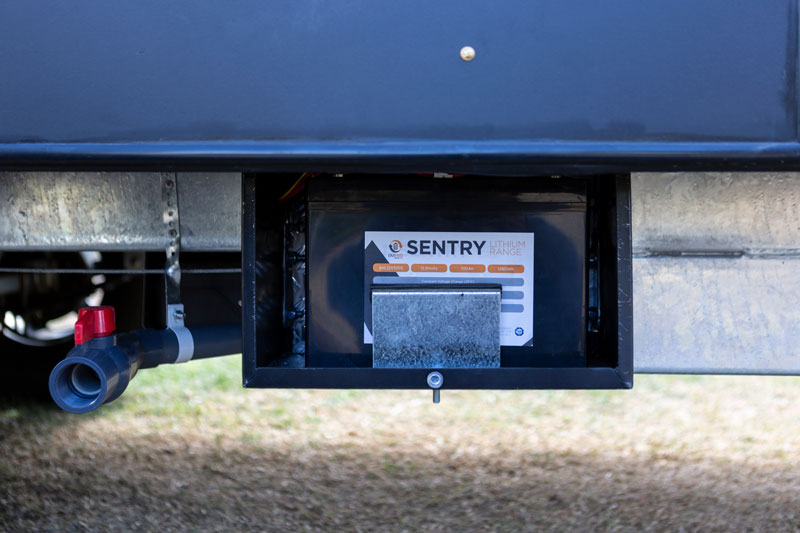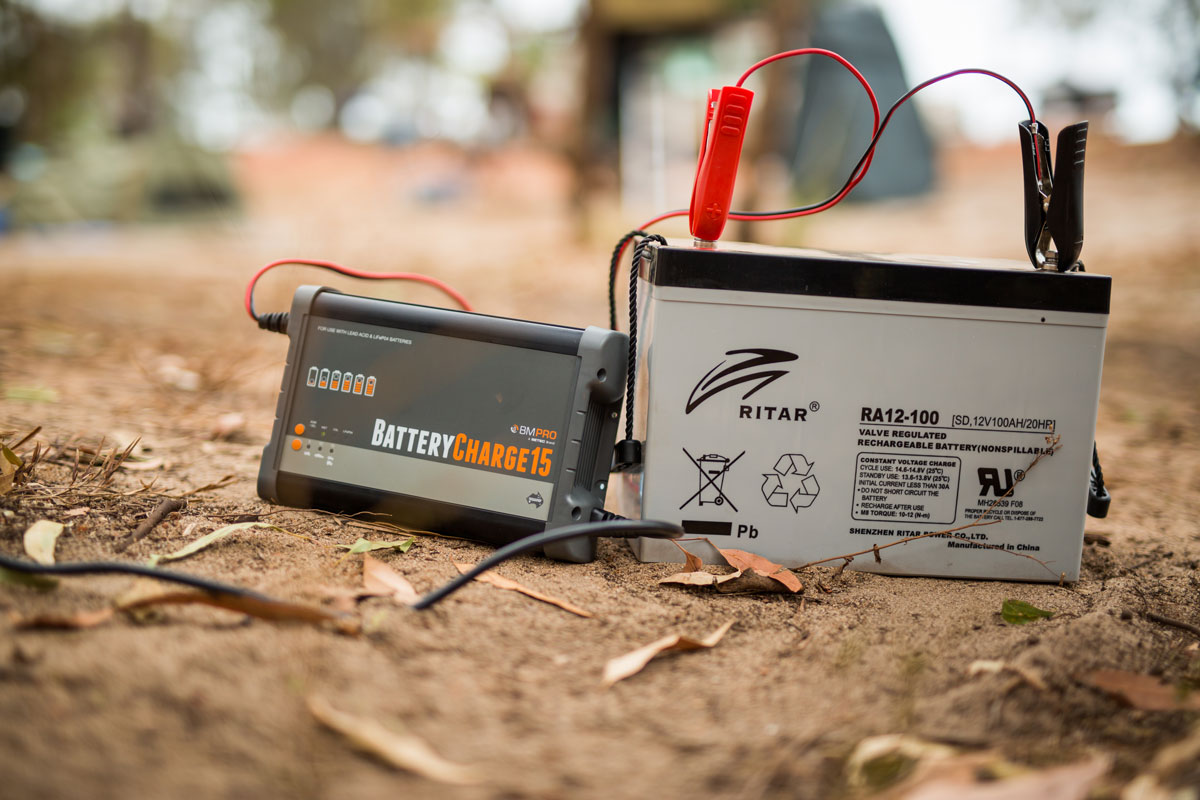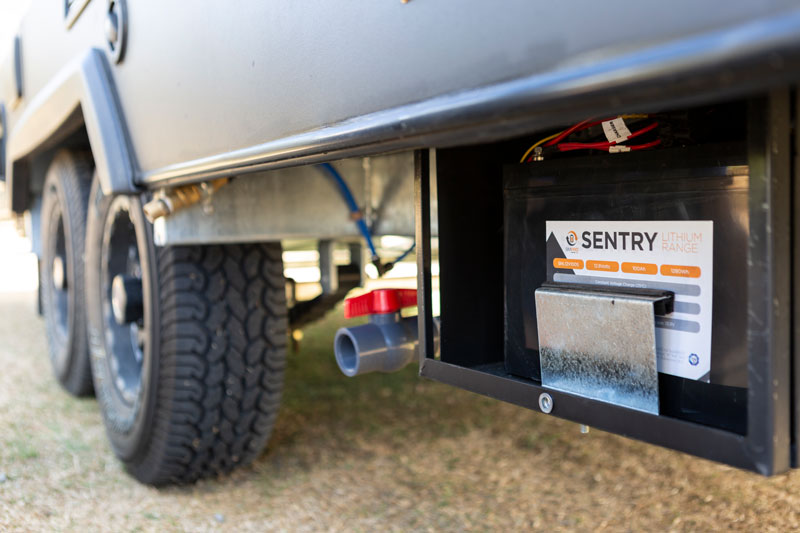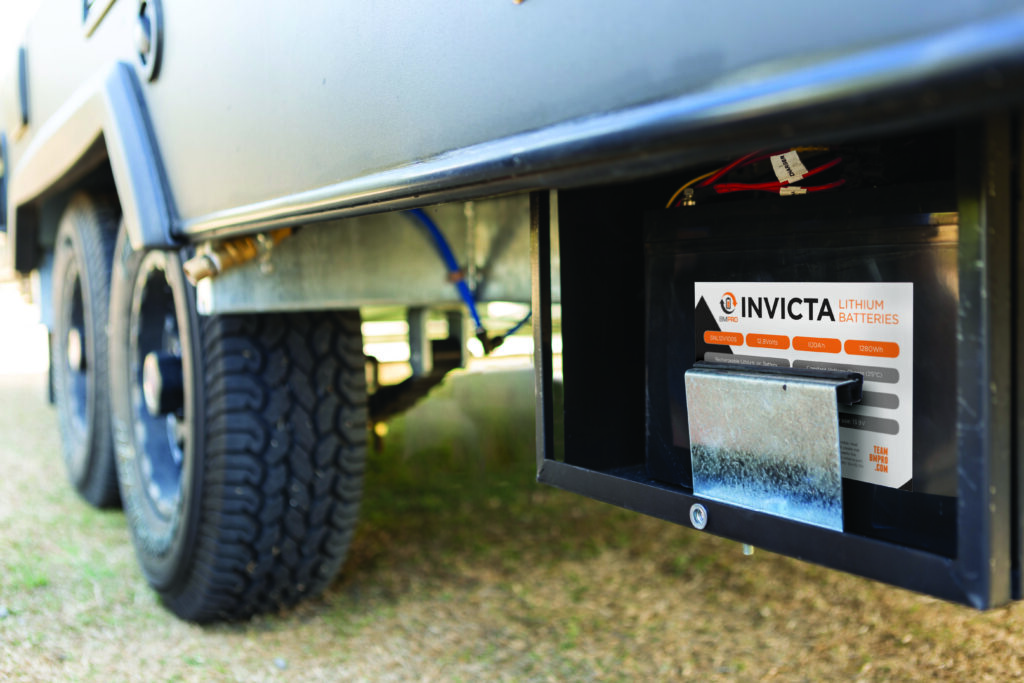
12V Guru – Protecting your batteries
Batteries running low or flatting out? Our 12V Guru discusses how to maintain the longevity and efficiency of your RV’s battery setup
Now that the states are opening their borders, we are all getting filled with joy at the perspective to travel again and start planning our new adventures. We dust off our camping gear, find our hiking shoes, uncover our caravans and… face a very sobering truth. Our camper or caravan batteries won’t recharge.

Caravans and campers stored in garages, sheds or front yards over the past year or even longer have not had their batteries maintained well. Caravan batteries are probably the second most expensive consumable replacement item in a RV after tyres but above gas and toilet chemicals. It is critical to think how you will maintain these during extended periods of storage.
Not much can be done for maintaining tyres during these periods however failing to adequately care about your battery will result in a costly start to your new adventure. For those who have not yet dusted off the cobwebs, we have a few critical tips to prevent unwanted expenditure and explain why these scenarios occur.

The reasons that a battery may be “dead” are varied and the circumstances may be different for each battery and the environment. It could be that the battery has not been “exercised” and that the internal chemical reaction inside has caused the plates to collapse which changes the resistance and can cause the battery to overcharge. This is normally represented by a swelling in the external case as it tries to vent the gas that are created in this process.
Another reason is that there is no compensation for environmental factors such as temperature. Many chargers come with a temperature sensor that can be attached to the side of the battery to detect if the ambient or internal temperature is too high and adjusts the charging algorithm accordingly.

Protect your investment in batteries – they are not cheap and simple actions can ensure your return to travelling is not an expensive one.
Like this post? Share it!

Batteries running low or flatting out? Our 12V Guru discusses how to maintain the longevity and efficiency of your RV’s battery setup

This is a guide to help understand the requirements of the new standard in relation to lithium battery

Looking for more Power? Our 12V Guru discusses the key elements you need to know when upgrading a 12V system

2 thoughts on “Protect your caravan batteries”
I LEAVE OUR VAN PLUGGED IN TO POWER WHEN NOT IN USE ,IS THIS OK?
Hi Marie,
Thanks for your inquiry.
Is it ok to leave your van plugged in all the time?
This can depend on what type of batteries you have. Refer to manufacturer of batteries for charging requirements when in storage.
Regards,
Glen